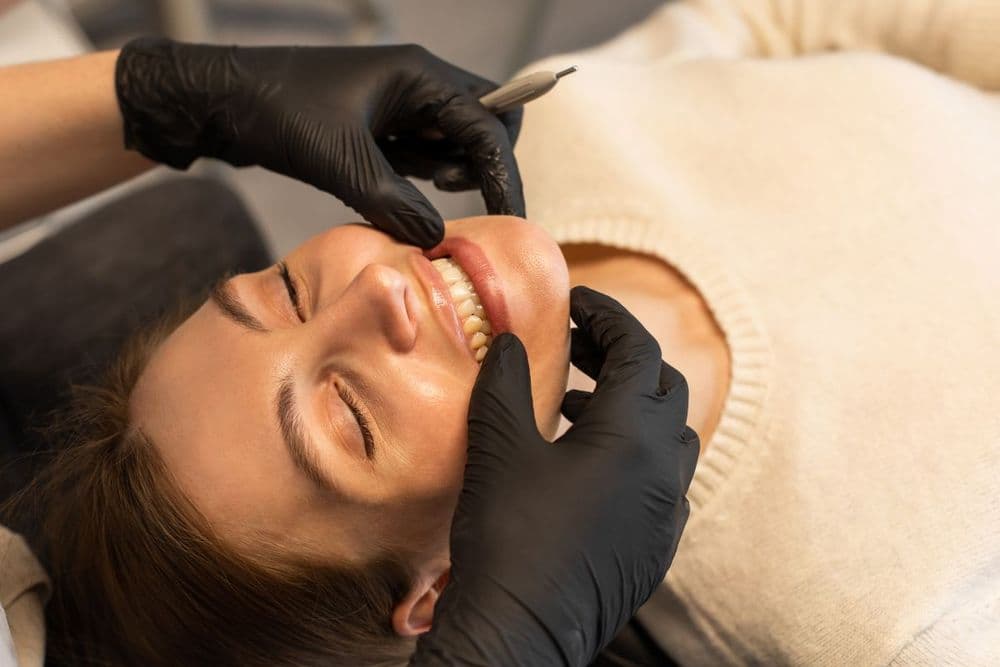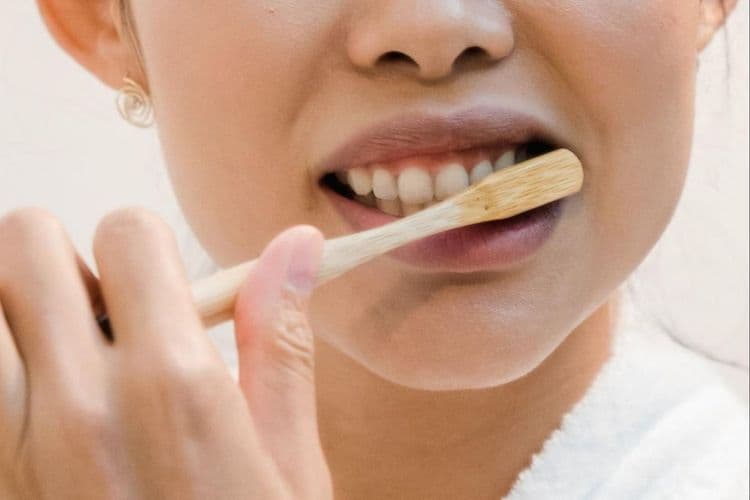How to Care for Your Teeth and Oral Microbiome at Every Age

It’s no secret that the health of your teeth, gums, and oral microbiome plays a major role in your overall systemic health. Forming healthy habits from a young age and getting children into their dental health routine is something any new family should understand, but parents can also set themselves up for success by identifying what should be on their own radar as they age. Enter our simple guide to oral health by life stage for any and all your oral health needs, from infant to senior oral care.
Infants & Toddlers
Any new mother has a wealth of personal decisions to make for the well-being of herself and her child. An infant’s dental health is no exception. While a primary care provider can walk you through everything you’ll need to be aware of, here are some key starting points to getting your child’s pearly whites off to a thriving start.
Your Baby’s Oral Care
Breastfeeding isn’t possible for everyone, but if it’s something you’re considering, recent studies found that breastfeeding can be associated with a positive start to an infant’s oral health. For instance, the Journal of the American Dental Association found that “babies who were exclusively breastfed for the first 6 months were less likely to have teeth alignment issues such as open butes, crossbites, and overbites, than those exclusively breastfed for shorter lengths or time or not at all.”[1]
In addition to positive associations with teeth alignment, studies also show that breastfeeding reduces the risk of baby bottle tooth decay - a periodontal disease that occurs after “prolonged exposure of the baby’s teeth to drinks that contain sugar…even ones containing formula, milk, or fruit juice.”
Of course, breastfeeding alone doesn’t necessarily dictate whether your child will have perfectly healthy or straight teeth as they reach adolescence. Genetics, wisdom teeth, and even a thumb sucking or ‘binkie’ habit can make an impact on your child’s oral health. Even those who are breastfeeding will be well served to begin caring for their children’s gums early on. This is why you should aim to start caring for your baby’s gums a few days after birth by gently wiping their gums with a moist, clean cloth and twice daily teeth brushing once the first tooth appears.
Start regular dentist visits early on so that your child’s dental team can assess your unique situation and work with you to develop a solid plan. Typically your child’s first visit should occur after the first tooth appears (around six months of age) and before their first birthday.
Prepare for their first dental visit by:
- Making a list of questions you’d like to run through with the dentist
- Try to schedule their appointment at a time when you child is typically rested. (An appointment during their usual nap time could be a big no-no.)
Caring for Your Toddler’s Dental Health
Similarly to infancy, it’s important to recognize that caring for your toddler’s baby teeth not only forms healthy habits, but gets your child off to a great start. Your toddler’s teeth are critical as they begin eating solids, speaking, and expressing themselves. Typically, children lose their first baby tooth around age six. In the meantime before their adult teeth emerge, here’s how you can care for your toddler’s teeth:
- Brush twice a day for two minutes each time to prevent cavities.
- Start flossing their teeth as soon as there are two teeth that touch.
- Schedule regular visits with your dentist.
- Limit your child’s sugar intake and promote a well-rounded diet.
Supporting Your Adult Oral Health
Once adult teeth emerge, it’s crucial to maintain oral health and keep the teeth and gums healthy through the teenage years, adulthood, and well into the senior years. Typically this involves:
- Brushing teeth twice daily and flossing once daily
- Dentist appointments every six months, at least
- Working with your dentist to understand your unique oral health plan
As we age, our oral healthcare picture can start to shift. There may be certain elements of dental wellness that we need to be aware of and ready to identify. From darkening teeth to dry mouth, here are some things you should keep an eye out for as you age:
Darkened teeth. This could indicate a breakdown of tooth enamel but should be checked by your dentist to ensure it isn’t something more serious.
Root decay. Heightened sensitivity can occur after repeated exposure to acidic foods or drinks that can accelerate decay of the tooth root.
Dry mouth. As we age, we can experience reduced saliva flow that can lead to dry mouth.[2]
Again, one of the best things you can do through all your oral life stages is regularly visit your dentist and work with your dental team to establish a tailored oral healthcare plan.
Going Beyond Dental Health
Just like your gut microbiome, your oral microbiome plays a vital role in overall systemic health. From the moment a child is born, microbes are seeded in the gut, skin, and oral mucosa. Research has shown that the types of microbes a child is exposed to is dependent on factors such as vaginal or cesarean birth, or formula-fed infants versus breastfed infants. The emergence of teeth is a catalyzing event in the oral environment, giving microbes an entirely new area to colonize. By the time a child has reached age three, their microbiome is a fairly intricate environment that will only become more complex with age. Even the replacement of baby teeth with adult teeth will alter the microbial environment.
Researchers still have much to learn about the oral microbiome. What they do know is that even though the oral mucosa is densely populated, the interplay of a host’s immune system and these microbes is a delicate dance of homeostasis. Saliva is a key influential factor on the oral microbiome. In fact, studies show that “saliva not only helps to maintain an environment that allows biofilms to flourish, but also modulates the layers of plaque with the help of numerous proteins…which control biofilm build-up and activity.”[3] It’s safe to say that within the oral habitat, everything is connected.
When caring for your oral health through every life stage, it’s important to take a holistic approach. Positive habits typically will have positive impacts on the oral microbiome, while poor oral hygiene can sometimes lead to a cascade of consequences for your overall oral health. Again, while scientists still have much to learn, it’s important to maintain a healthy mouth so that your oral microbes can maintain balance.
Resources:
[1] Mouth Healthy TM. (n.d.). Retrieved October 10, 2022, from mouthhealthy.org
[2] WebMD. (n.d.). Dental Care for Seniors. WebMD. Retrieved October 10, 2022, from webmd.com
[3] Kilian, M., Chapple, I. L. C., Hannig, M., Marsh, P. D., Meuric, V., Pedersen, A. M. L., Tonetti, M. S., Wade, W. G., & Zaura, E. (2016, November 18). Nature News. Retrieved October 25, 2022, from nature.com


